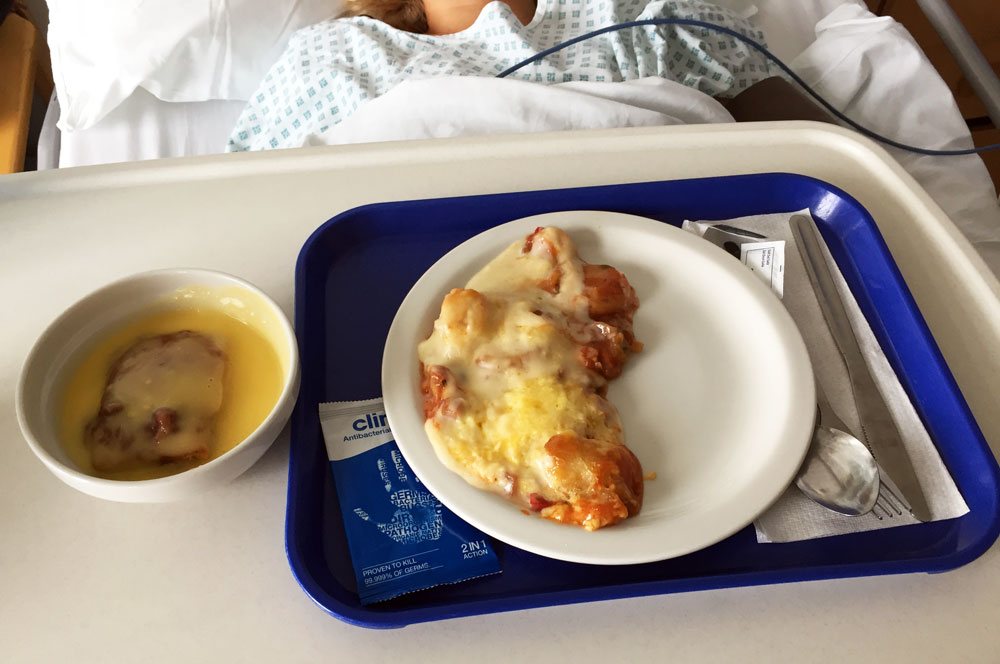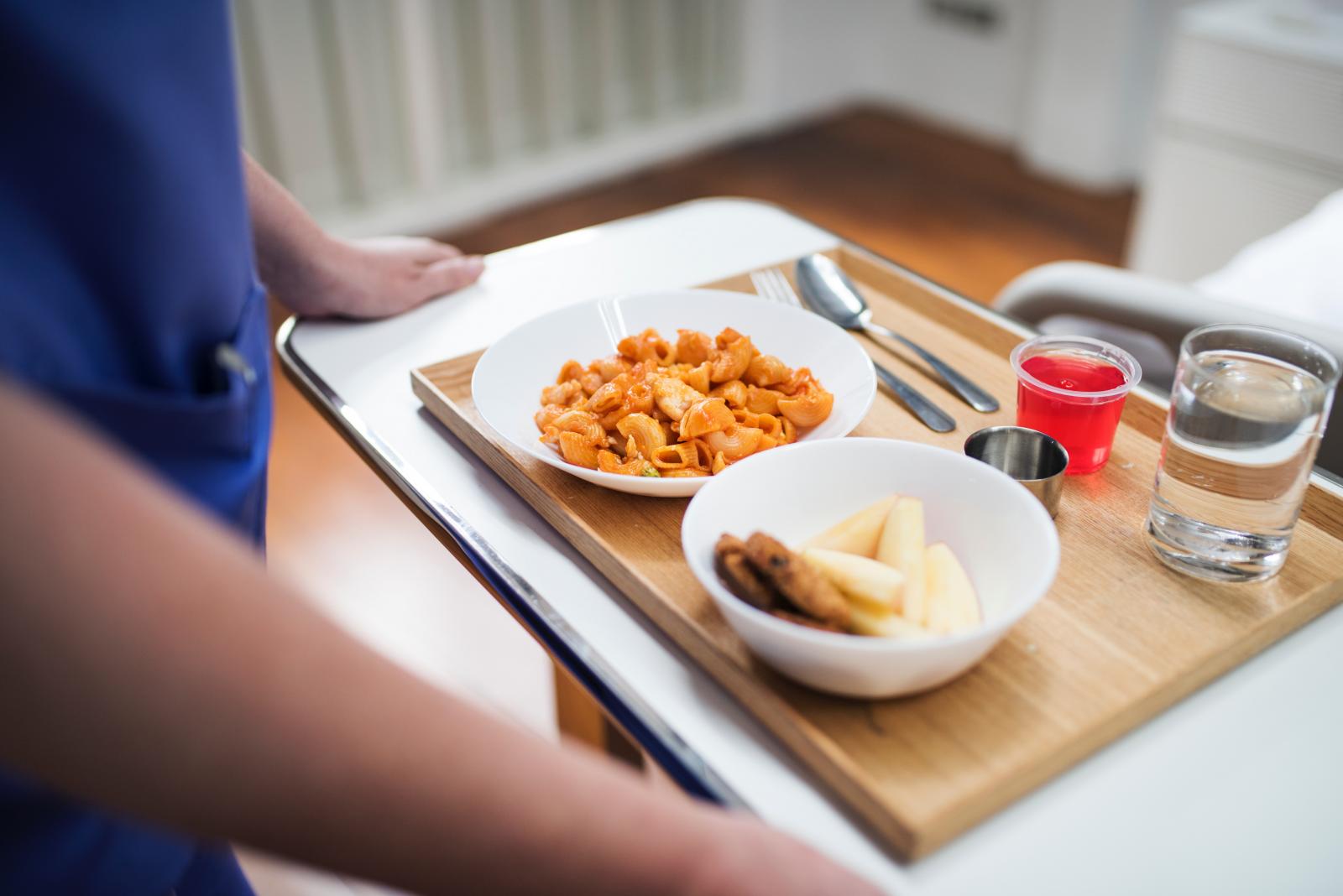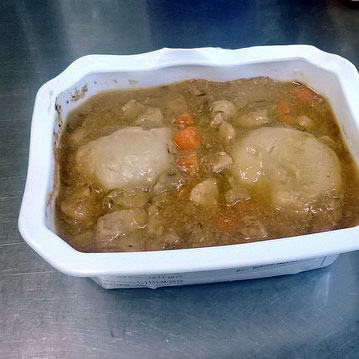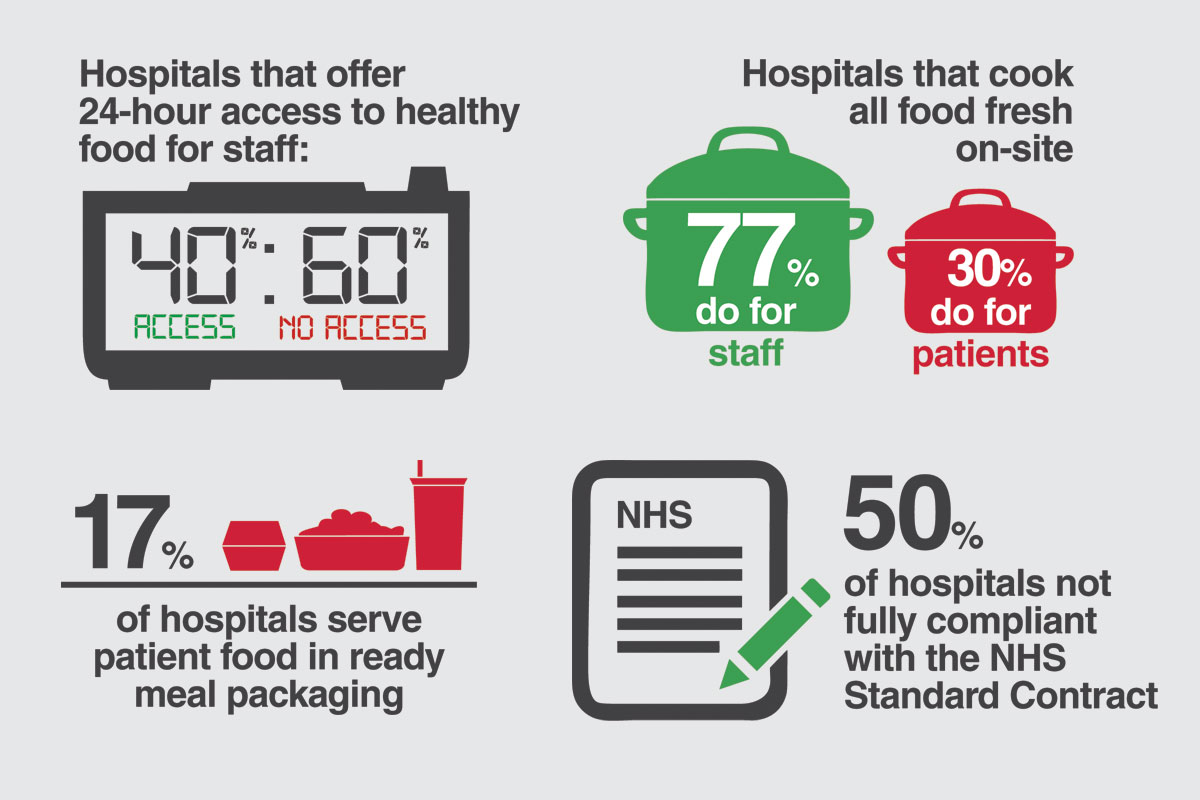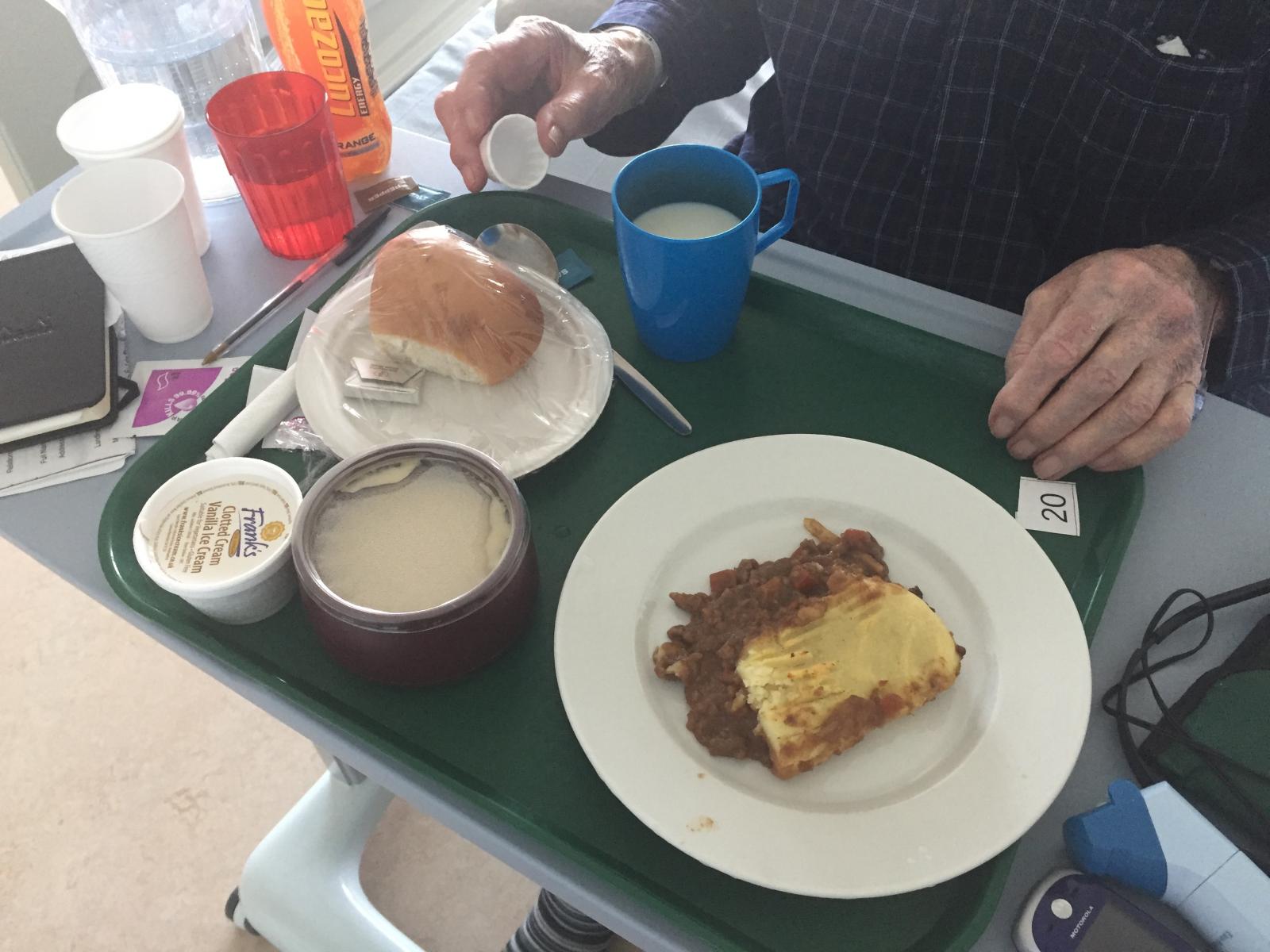The Campaign for Better Hospital Food wants hospitals to serve more fruit and vegetables which have been sustainably grown. Photograph: Sarah Lee for the Guardian.
NHS hospitals in England buy a lot of food, enough for 300 million patient meals a year. Much of it is poor quality and unpopular with those who are asked to eat it.
Most people have a negative view of hospital food. This is perhaps not surprising given the endless stream of horrendous hospital food stories in the press, including revelations that one in every 10 patient meals is returned to the kitchen uneaten. A recent sample of hospital ready meals by the Campaign for Better Hospital Food found that three out of every four dishes would be given a red (high) traffic light for saturated fat under the Food Standards Agency's traffic light model. Worryingly, many of these dishes were found to be unhealthier than meals served by fast food outlets like McDonalds and children's meals aren't any better.
We believe that the only way to improve the quality of all patient meals and ensure they are healthy and produced in a way which is environmentally-friendly and ethical, is to require them to meet mandatory sustainability standards. These include easily achieved nutritional, environmental and ethical standards.
For example, we want mandatory standards to require hospitals to serve more fruit and vegetables which have been sustainably grown (such as organic), using less oil and water and without damaging soil and biodiversity. This would be the single most effective way to support patient dietary health and would help to protect the environment at the same time.
We also want standards to require hospitals to serve fresh fish, but only fish which is certified by organisations like the Marine Stewardship Council to have come from stocks which are not in danger of becoming endangered. We also want hospitals to give their patients more water, but ensure it comes from the tap rather than in a bottle. The list goes on.
It is true that better hospital food may sometimes cost more, but it is also certain to achieve huge long-term financial benefits, not least in tackling diet-related ill health, helping patients to recover more quickly and investing in British farmers producing high quality ingredients.
Although the government is much less interested in long-term gains than short-term cuts, it should open its eyes to the pleasant reality that hospitals can buy better food without breaking their budgets. Nottingham University Hospitals, for example, has found that it has not had to pay more for better patient meals, despite shifting to high quality ingredients like cage-free eggs and RSPCA accredited chicken and pork.
Scotland introduced nutritional standards for hospital food in 2008 and Wales in 2011 and while there is not doubt that food is now healthier, it is too early to yet measure the longer-term benefits, for example faster patient recover times.
Successive governments have tinkered with hospital food but have shied away from setting mandatory standards. The current government's drive for localism has only entrenched this problem, because it aims to restrict state intervention in health services.
New health secretary Jeremy Hunt recently announced eight new "principles" for patient meals which he hopes hospitals will meet. But we don't expect this to achieve any more progress than the previous 20 or so failed voluntary efforts to improve hospital food which have been launched by government in the last 10 years alone. It is scandalous that these voluntary attempts have wasted more than £50m of taxpayers' money.
It took nothing less than a national movement led by Jamie Oliver, the Children's Food Campaign and many others to achieve mandatory standards for school food. As a result children now eat more healthy, tasty and varied meals. It is our job to ensure that the government sets mandatory hospital food standards, so that hospital patients benefit from a similar transformation in their food.
Alex Jackson is co-ordinator of the Campaign for Better Hospital Food, which is calling on the government to introduce compulsory nutritional, environmental and ethical standards for hospital food in England.
Friday 2 November 2012
Guardian
Better Hospital Food: The campaign represents a coalition of organisations calling on the Westminster government to introduce mandatory nutritional, environmental and ethical standards for food served to patients in NHS hospitals in England.


